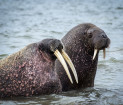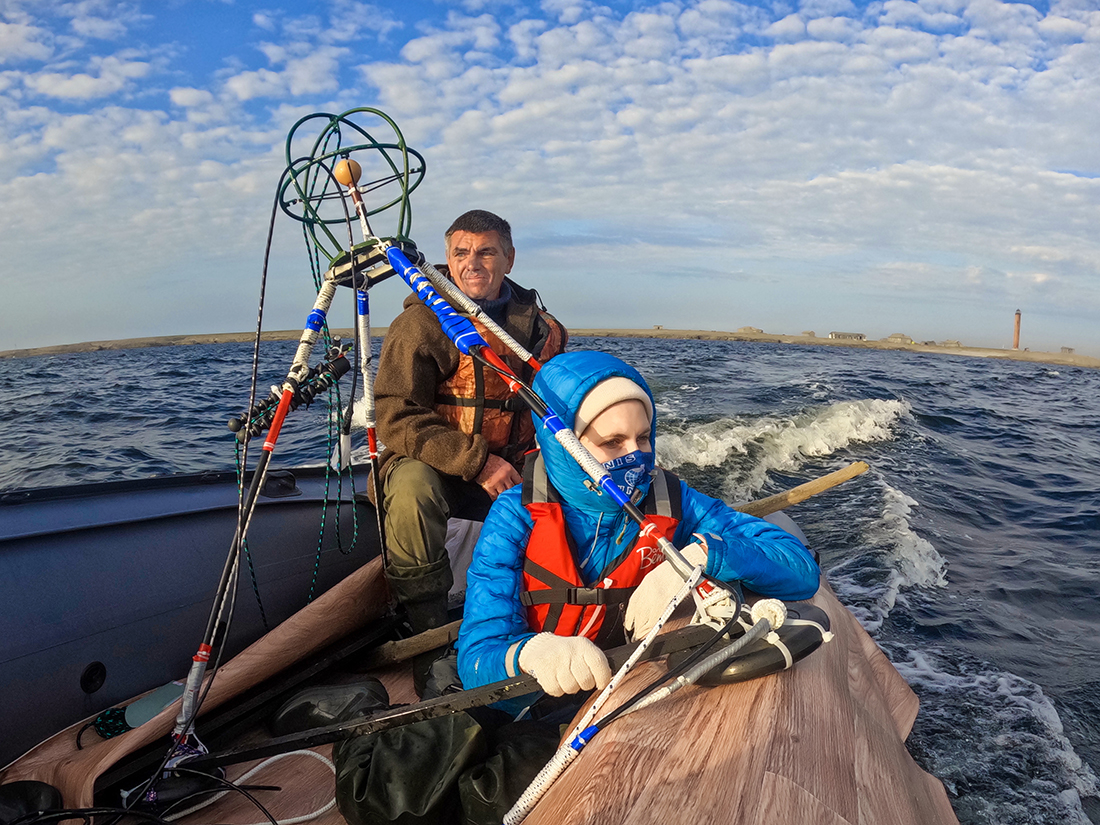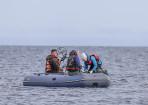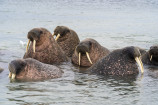Scientists from the Institute of Oceanology of the Russian Academy of Sciences, together with employees of the Nenetsky State Nature Reserve, managed to conduct unique bioacoustic work on a walrus rookery in the Pechora Sea. For the first time, Russian specialists have been able to record the underwater voices of an Atlantic walrus in the wild. The data obtained will help to better understand the behavior of pinnipeds and protect them from the influence of shipping noise and other anthropogenic activity in the region.
In the conditions of active development of the Arctic, the level of noise pollution is also growing, which is no less a threat to marine mammals than, for example, chemical pollution of the habitat. It is believed that increased levels of underwater noise may affect the ability of these animals to hear and use sound, cause changes in their behavior and habitat use, and may also cause chronic stress. For walruses, constant noise and direct disturbance by ships can become a serious problem and lead to the fact that the animals are forced to leave their usual places.
Matveev Island, which is part of the Nenets Reserve, located in the eastern part of the Pechora Sea, was chosen for field work. Every summer, one of the largest Atlantic walrus rookeries is formed here - up to 2 thousand individuals. On the coast, the animals rest, and in the adjacent water area they get their own food, which makes this area extremely important for the walruses living here.
The expedition lasted from mid-July to early August 2022. For eleven days continuously, experts recorded the vocalizations of walruses – their underwater “talks”, as well as other underwater sounds, both natural and anthropogenic. The specialists of the IO RAS managed to carry out such studies for the first time in Russia. It turned out that there are a lot of sounds made by walruses near the rookery. These are knocks, rumblings, whistles and even sounds similar to beats on a tambourine. And yet it is worth noting that the repertoire of walruses is much poorer than, for example, dolphins. It is noteworthy that, according to the literature data, male walruses actively make underwater sounds in the spring during the rutting season in ice habitats, using them as acoustic demonstrations to attract females. The active underwater vocalization of walruses in the summer, during the feeding period, next to the rookery consisting exclusively of males, indicates the important role of these sounds for walrus communication outside the breeding season.
For the Nenets Reserve, these are also new, but very interesting works. One of the main tasks of the reserve is to provide walruses with comfortable conditions for rest during the ice-free period. The collected data will help specialists assess how much walruses are affected by anthropogenic noise and develop measures to protect animals in key areas of their habitat.







